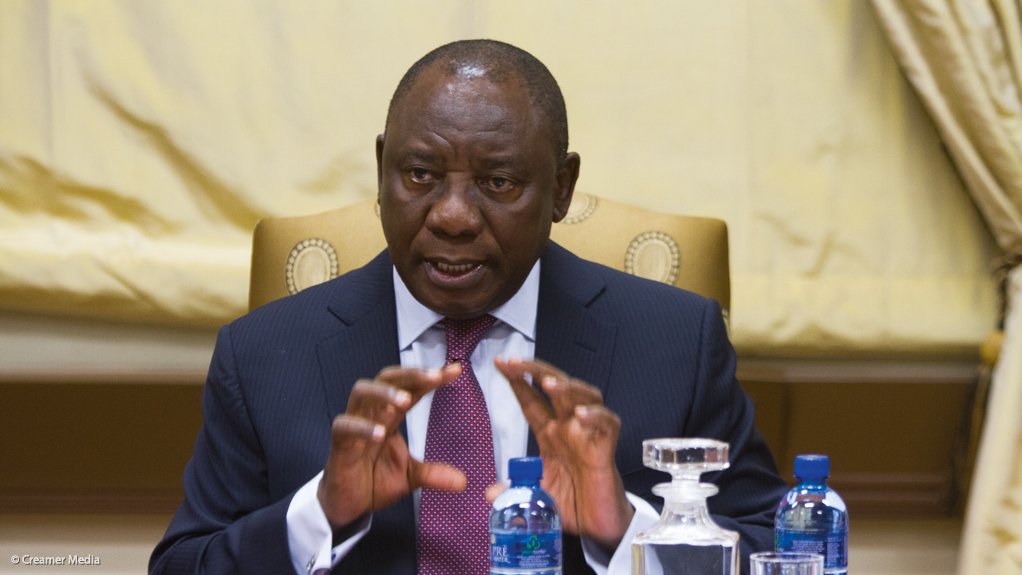With Africa holding 60% of the world’s arable land, agriculture held one of the keys to unlocking economic opportunities for the continent, but could only be achieved through cooperation with other countries in regions such as Asia.
Speaking at the Asia–Africa Business Summit in Jakarta, Indonesia, South African Deputy President Cyril Ramaphosa noted that, because of the diversity of crops cultivated on the continent, Africa had the potential to increase the nutritional value of global food supply more than any other region in the world.
“The continent is blessed with an abundance of natural resources. However, for African farmers to benefit fully from their contribution to global food supply, they need to be more involved in the food value chain – from seed to market,” he said.
Further, Ramaphosa pointed out that the continent, which would have a working age population of one-billion people by 2040, needed to find ways to add economic value locally, which could be achieved through local manufacturing.
“The manufacturing sector is key to economic transformation in Africa. Few countries have managed to improve their national income by relying solely on the export of raw materials,” he said, adding that manufacturing was vitally important to Africa’s economic future, as it could contribute substantially to improving growth, reducing unemployment and addressing balance of payment issues.
“With a market of close to 900-million people, Africa has the capacity to become a manufacturing success,” he stated.
Infrastructure was also a key area for investment, as it held “great potential for Africa–Asia collaboration”.
“Africa’s ability to trade is hampered by a lack of physical infrastructure. Many African countries – without adequate rail, road and port infrastructure – are unable to productively exploit their abundant natural resources.
“Asian countries, with their skills, capital and technical and engineering expertise, can partner with African countries in developing this critical area,” Ramaphosa emphasised.
He added that Africa needed a highly skilled workforce to become globally competitive. “Africa is short of technical expertise and training.
This is a further area for collaboration, as many Asian countries are at the forefront of education and skills development,” he pointed out.
RESTORING THE BALANCE
However, Ramaphosa noted that there was a need to restore the trade imbalance between the two countries.
“Trade flows between the two continents have increased significantly over the years, totalling $423-billion in 2013. However, as of 2014, Asia accounted for only 26% of Africa’s trade flows.
“In addition, all of the top-ten Asian imports from Africa were commodity-based, with crude oil and gas accounting for 58% of imports and ores and metals accounting for a further 20%,” Ramaphosa said.
He added that Africa’s imports from Asia were more diverse, comprising machinery, vehicles and electronics, which accounted for 30% of imports.
“We need to increase trade between Africa and Asia to ensure the realisation of our respective economic development agendas. We need also to address the current trade imbalance.
“We are, therefore, delighted that a platform of this nature exists, allowing us to share best practice and explore opportunities for greater economic cooperation,” Ramaphosa said.
He suggested that a number of reforms needed to be implemented to place Africa–Asia trade on a higher growth trajectory. “The first can be described as ‘at the border’ reforms. These are aimed at eliminating escalating tariffs on Africa’s leading exports.
“The second are ‘behind the border’ reforms, in which Africa takes steps to improve competitiveness and strengthen its basic market institutions,” he said.
Ramaphosa explained that the third – ‘between the border’ reforms – were aimed at improving trade facilitation infrastructure and institutions to reduce transaction costs associated with customs administration, transport and communications, while a series of reforms would have to be instituted to leverage linkages between investment and trade to allow the participation of African businesses in modern global production.
To further bolster this trade, a number of African countries will implement a Tripartite Free Trade Agreement, which would add impetus to Asia’s involvement in Africa.
This initiative would expand intra-African trade, promote collaboration between the regional economic communities and facilitate joint resource mobilisation and project implementation.
It would also establish an integrated market with a combined population of 600-million people, a total gross domestic product of $1-trillion, and a long-term growth rate in excess of 5% a year.
“Soon we will begin work, under the leadership of the African Union, to create a continental free trade area, bringing 54 countries together into a massive single market,” Ramaphosa said.
EMAIL THIS ARTICLE SAVE THIS ARTICLE
To subscribe email subscriptions@creamermedia.co.za or click here
To advertise email advertising@creamermedia.co.za or click here











